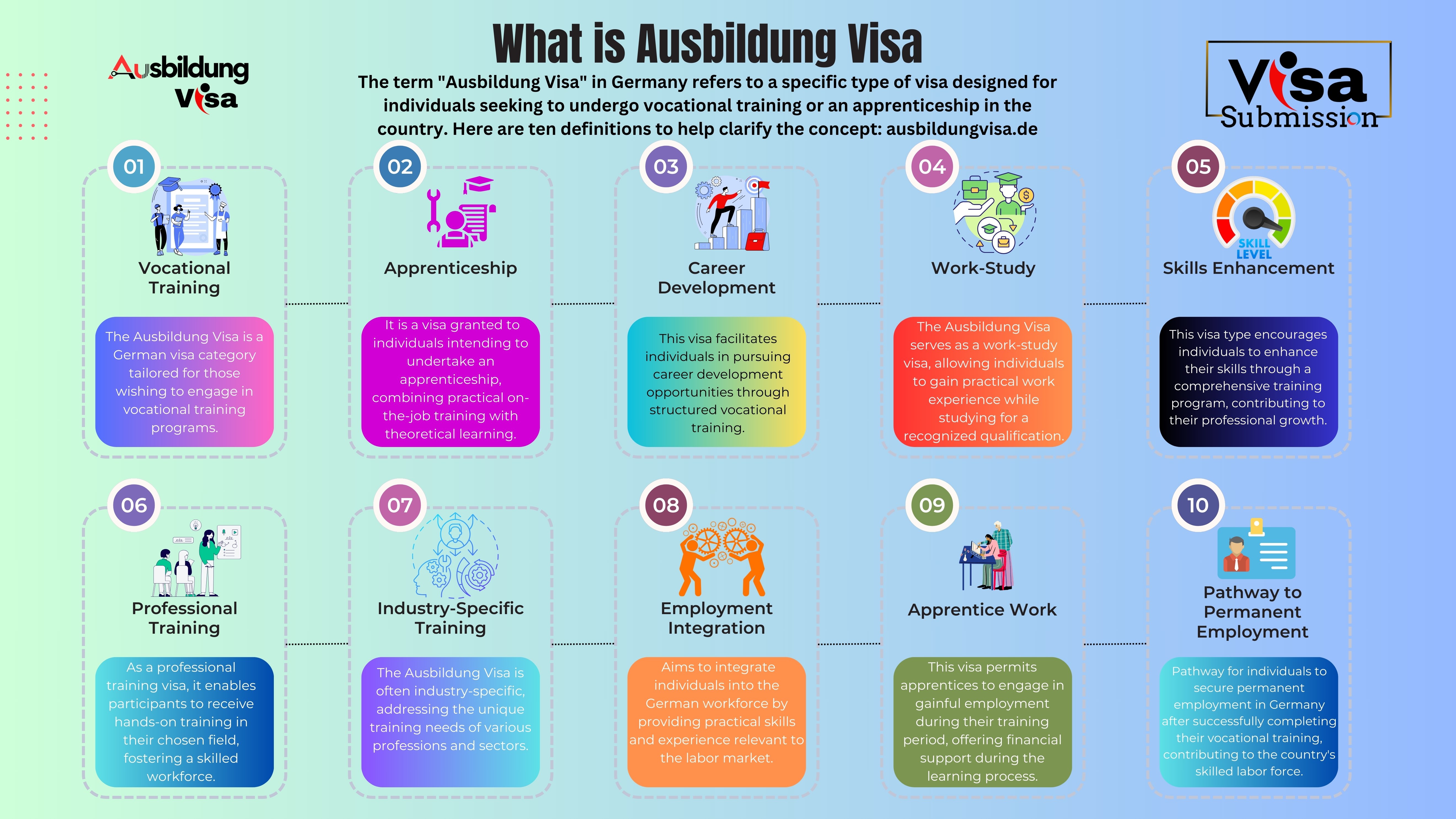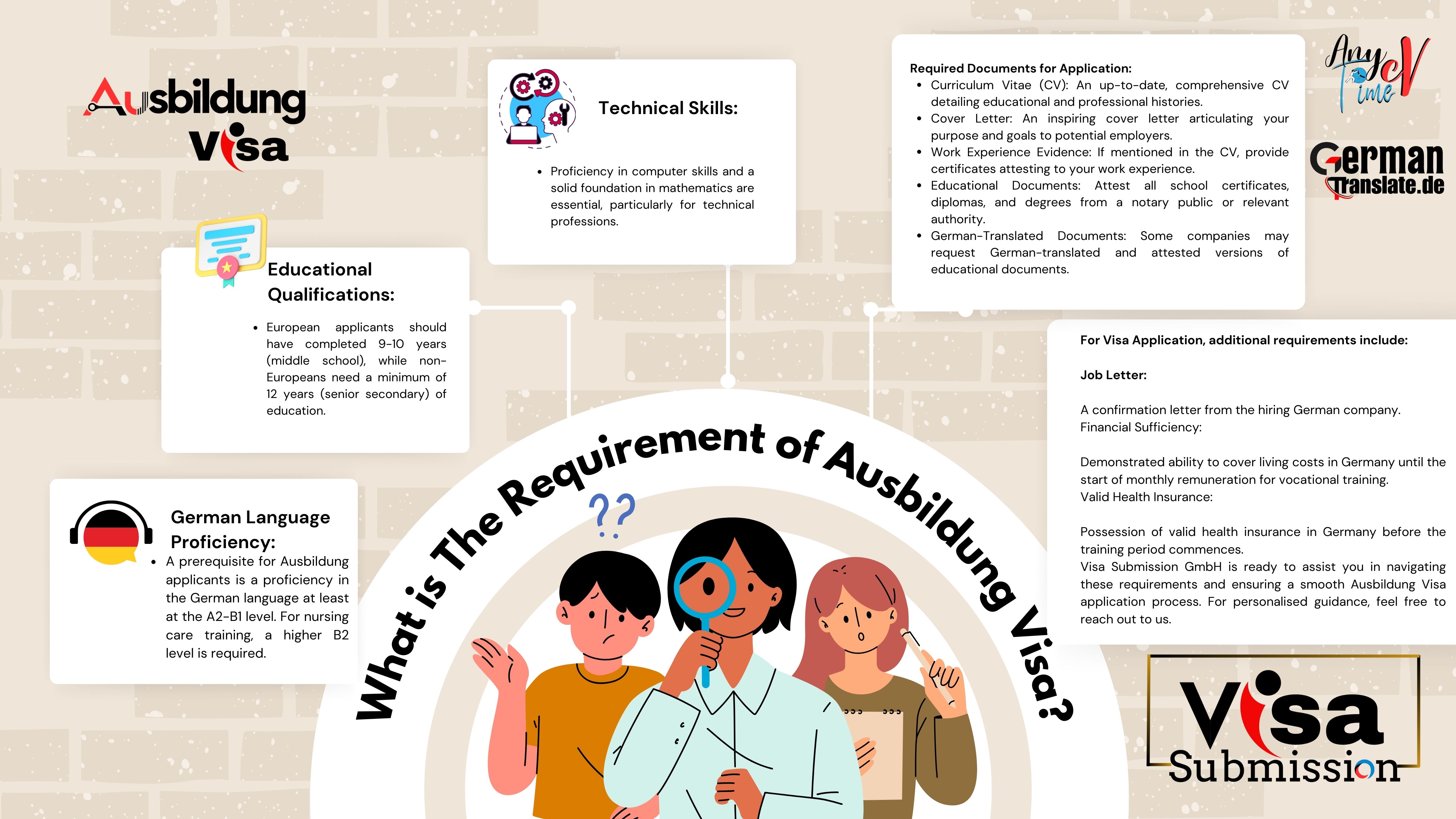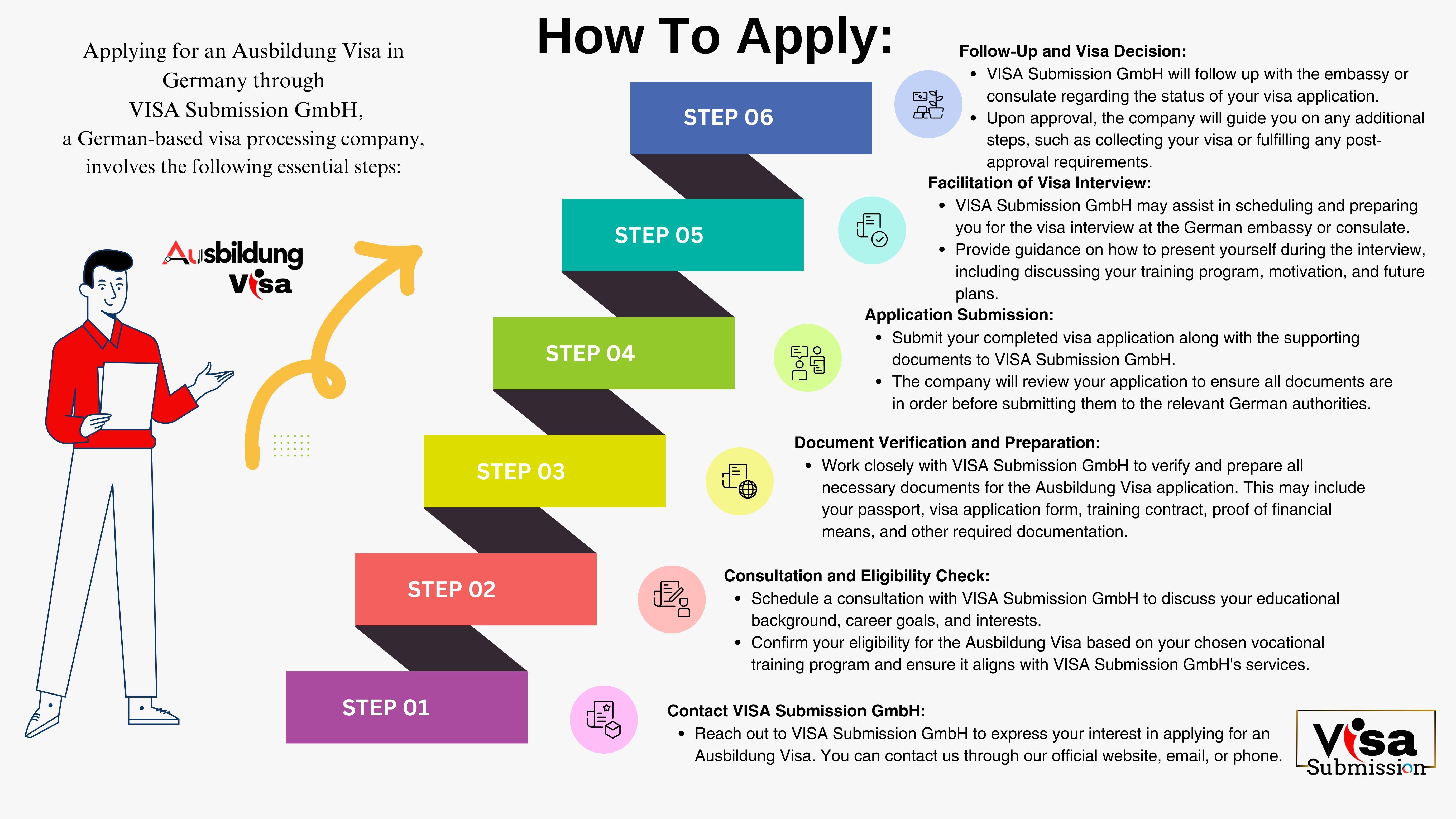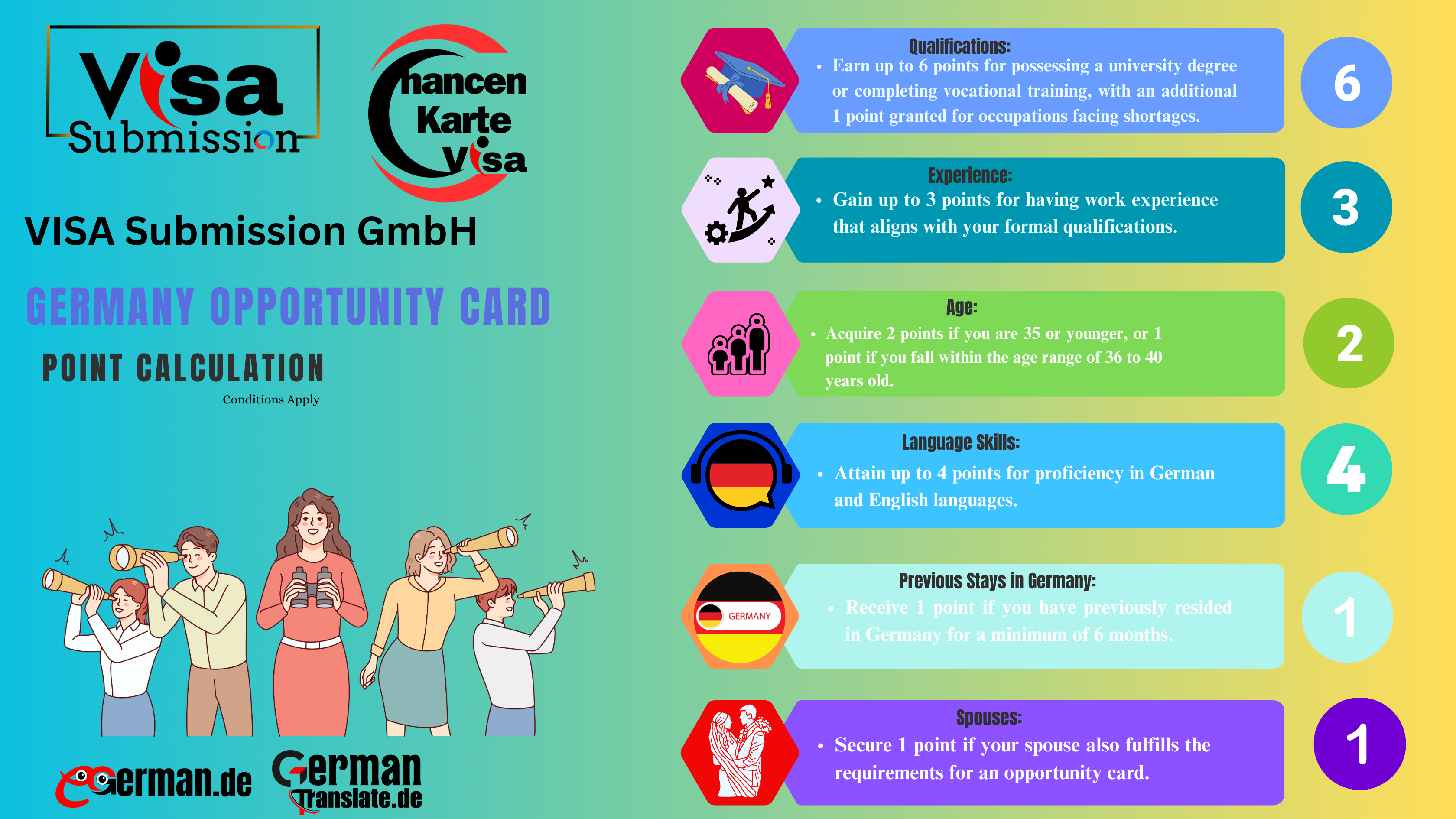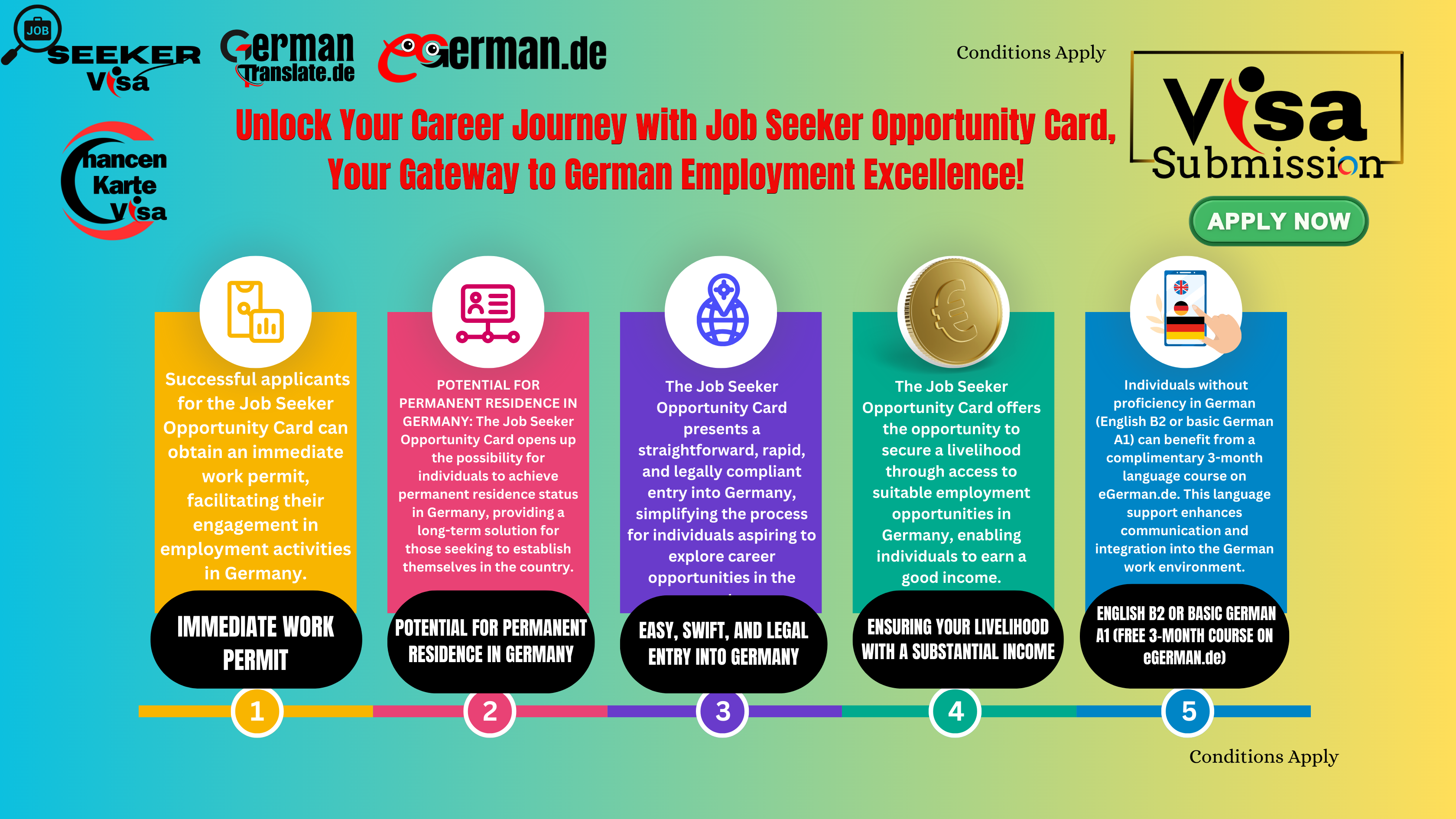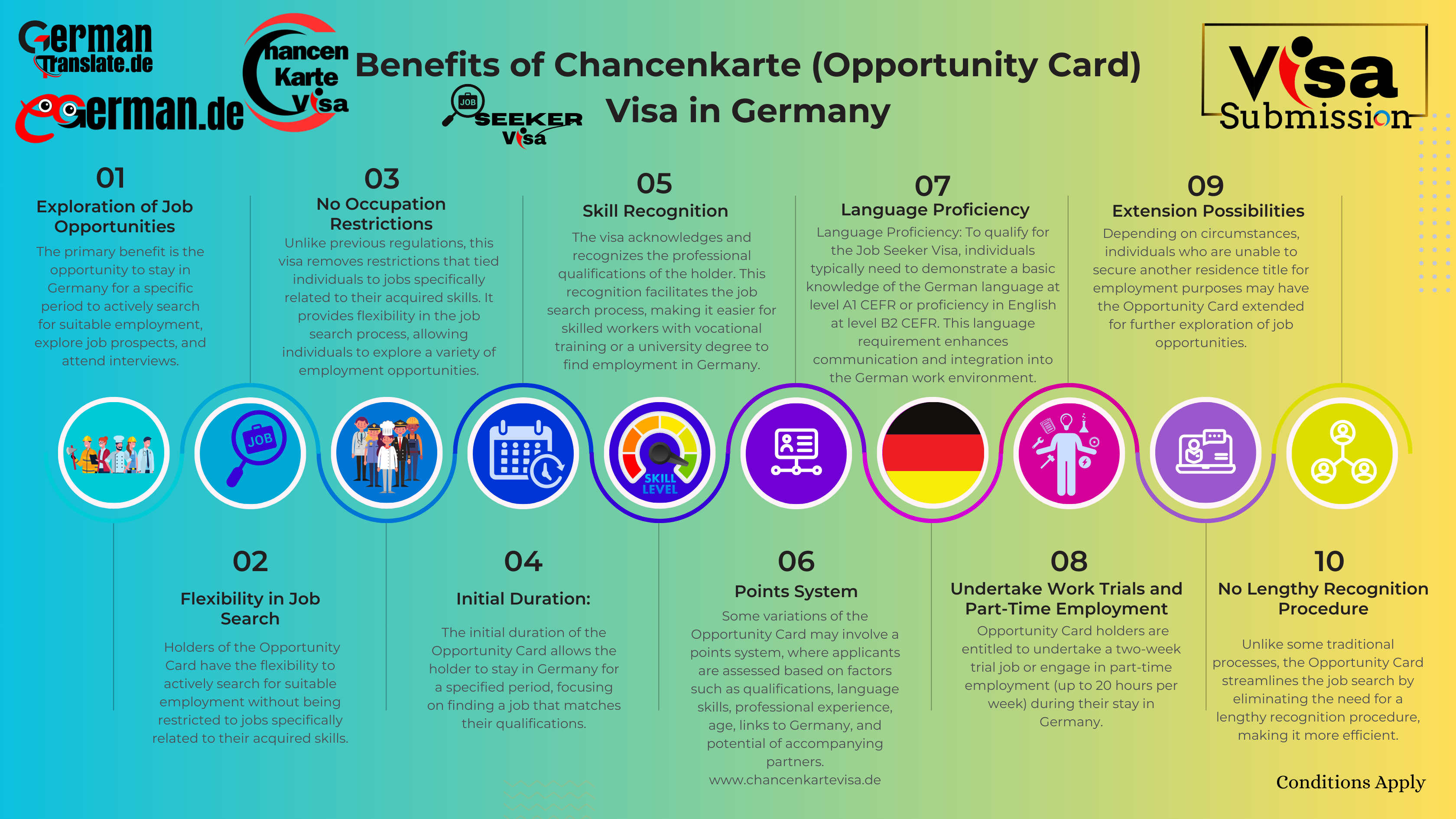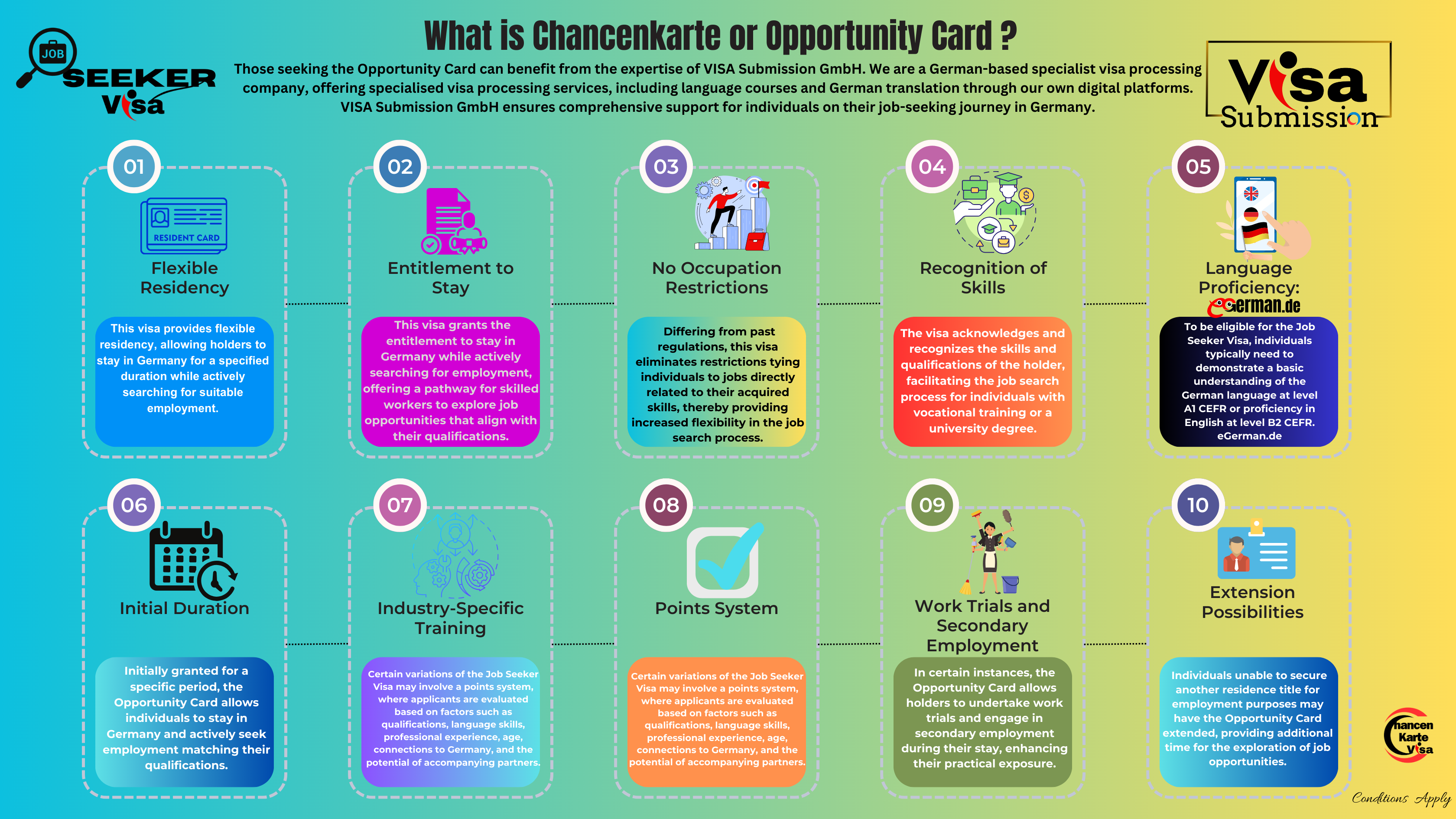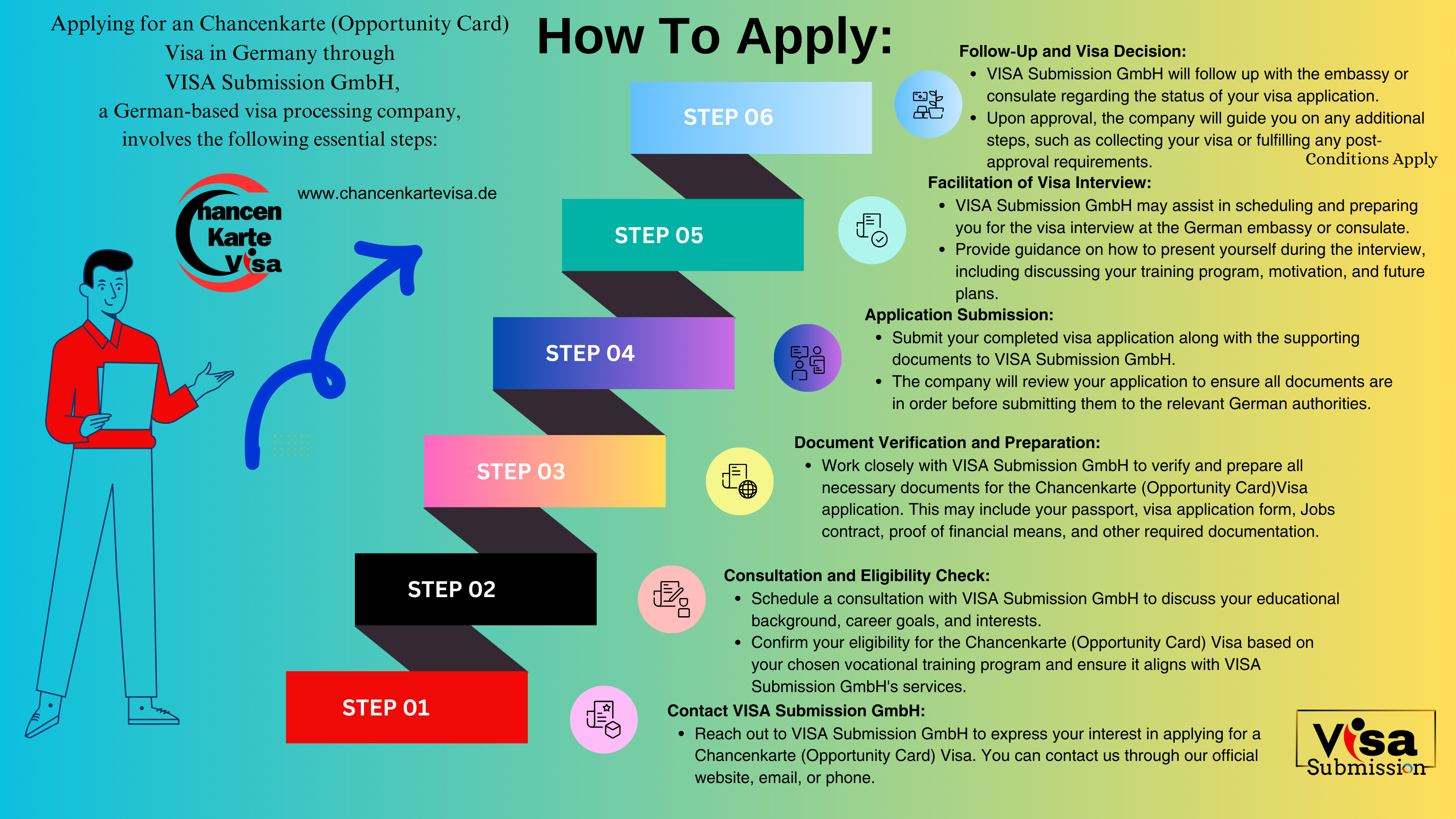Work Permit
The procedures and requirements for obtaining a work permit can vary widely from country to country, and may even vary depending on the specific job or industry in which an individual is seeking employment. Additionally, there may be different types of work permits available depending on the individual's qualifications, experience, and other factors.
It is recommended that individuals seeking to obtain a work permit in a specific country consult with the relevant government agencies or immigration authorities to determine the specific procedures and requirements for their situation. They may also wish to consult with an immigration lawyer or other legal professional for guidance and assistance. VISA Submission GmbH management provide all kind of assistance regarding Work Permit visa procedures.
Germany:
The requirements for obtaining a work permit visa in Germany are generally the same for all nationalities. Here are the general requirements and procedures for obtaining a work permit visa in Germany:
- Types of Work Permits:
- General work permit: for non-EU nationals who intend to work in Germany for a specific employer
- EU Blue Card: for non-EU nationals who possess specialized skills and knowledge and intend to work in Germany for a specific employer
- Self-employment visa: for non-EU nationals who intend to start a business or work as a freelancer in Germany
- Eligibility Requirements:
- A valid passport with at least six months validity beyond the intended stay in Germany
- A work contract or a job offer from a German employer
- Proof of qualifications or experience required for the job position
- Proof of financial means to support oneself during the stay in Germany
- A completed work permit visa application form
- For non-EU nationals, a residence permit may also be required
- Procedure:
- The employer in Germany must obtain a work permit approval from the Federal Employment Agency (Bundesagentur für Arbeit).
- The employer must then provide the approved work permit to the employee, who must apply for a work permit visa at the German embassy or consulate in their home country.
- The employee must provide the required documents and attend an interview at the embassy or consulate.
- If the work permit visa is granted, the employee can enter Germany and start working.
- Within 90 days of arriving in Germany, the employee must apply for a residence permit and a work permit at the local immigration office (Ausländerbehörde).
- The Ausländerbehörde will issue the work permit and residence permit within a few weeks of receiving a complete application.
It is important to note that the requirements and procedures for obtaining a work permit visa in Germany can change over time, so it is recommended to check the latest information with the relevant authorities or a legal professional.
European Blue Card
The European Blue Card is a work permit that allows highly skilled non-EU citizens to work and live in any EU member state (excluding Denmark, Ireland, and the UK) for a period of up to four years. Here are the general requirements and procedures for obtaining a European Blue Card:
- Eligibility Requirements:
- A job offer or a work contract from a company based in an EU member state (excluding Denmark, Ireland, and the UK) that pays a salary at least 1.5 times the average gross salary in the specific country.
- A university degree or five years of professional experience in a highly skilled field.
- Valid travel documents and health insurance.
- No criminal record.
- Application Process:
- Apply for a visa at the consulate or embassy of the country where you intend to work and live.
- Provide the necessary documents, including a valid passport, work contract, diplomas, and proof of health insurance.
- Pay the visa application fee.
- Wait for the visa to be processed, which can take up to three months.
- Issuance of the Blue Card:
- Once the visa is approved, you will receive a Blue Card, which allows you to work and live in the EU member state where you have been offered a job for up to four years.
- You can apply for permanent residency after five years of living in the country.
It's important to note that each EU member state may have its own specific requirements and procedures for issuing the European Blue Card, so it's recommended to consult the relevant embassy or consulate for more information.
The requirements for obtaining a European Blue Card in Germany are as follows:
-
Qualifications: You must hold a recognized university degree or vocational training qualification equivalent to a German degree. The profession must be in demand in Germany.
-
Job Offer: You must have a job offer or binding job contract for highly qualified employment with a minimum salary of €55,200 per year. For occupations in areas with a skills shortage, the minimum annual salary is €43,056.
-
Work Experience: You must have at least five years of relevant work experience in your field.
-
Health Insurance: You must have valid health insurance coverage.
-
Language Skills: You must have a sufficient knowledge of German, at least level B1 according to the Common European Framework of Reference for Languages.
-
Clean Criminal Record: You must not have any criminal record in Germany or any other country.
-
Application: You must submit the completed application form, your job contract, degree certificate, proof of health insurance, proof of language proficiency, and any other relevant documents to the German embassy or consulate in your home country or in Germany.
Note that the requirements and application process for the European Blue Card may vary slightly depending on your nationality and individual circumstances.
